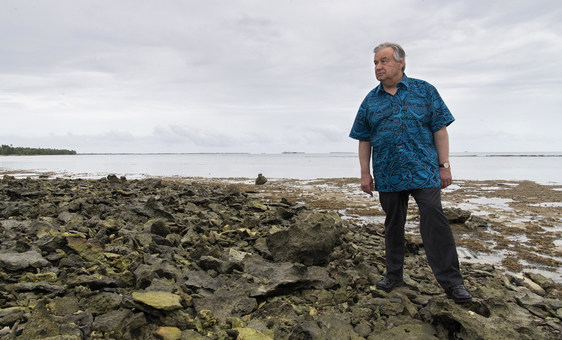Within the next five years, everyone on Earth should be protected by early warning systems against increasingly extreme weather and climate change, according to an ambitious new United Nations target announced on Wednesday, March 23, 2022.

UN Secretary-General, António Guterres, has tasked the World Meteorological Organisation (WMO) to lead the effort and present an action plan to achieve this goal at the next UN climate conference in Egypt this November.
The announcement was made on World Meteorological Day observed on Wednesday, which this year has “Early Warning and Early Action” as its theme.
“Human-caused climate disruption is now damaging every region. The most recent report of the Intergovernmental Panel on Climate Change details the suffering already happening. Each increment of global heating will further increase the frequency and intensity of extreme weather events,” said Mr Guterres.
“We must invest equally in adaptation and resilience. That includes the information that allows us to anticipate storms, heatwaves, floods and droughts,” said the UN chief.
However, one-third of the world’s people, mainly in least developed countries and small island developing states, are still not covered by early warning systems. In Africa, it is even worse: 60 per cent of people lack coverage.
“This is unacceptable, particularly with climate impacts sure to get even worse,” said Mr Guterres.
“Early warnings and action save lives. To that end, today I announce the United Nations will spearhead new action to ensure every person on Earth is protected by early warning systems within five years. I have asked the World Meteorological Organisation to lead this effort and to present an action plan at the next UN climate conference, later this year in Egypt,” Mr Guterres said in a video message to the World Meteorological Day ceremony.
“We must boost the power of prediction for everyone and build their capacity to act. On this World Meteorological Day, let us recognise the value of early warnings and early action as critical tools to reduce disaster risk and support climate adaptation.”
Climate change is already very visible through more extreme weather in all parts of the world. We are seeing more intense heatwaves and drought and forest fires. There is more water vapor in the atmosphere, which leads to extreme rainfall and deadly flooding. The warming of the ocean fuels more powerful tropical storms and rising sea levels increase the impacts.
Over the past 50 years (1970-2019), a weather, climate or water-related disaster has occurred on average every day – taking the lives 115 people and causing $202 million in losses daily, according to a 2021 WMO report on disaster statistics.
The number of recorded disasters increased by a factor of five over that 50-year period, driven by human-induced climate change, more extreme weather events and improved reporting.
But thanks to improved early warnings and disaster management, the number of lives lost decreased almost three-fold over the same period thanks to better weather forecasts and proactive and coordinated disaster management.
“The growing number of disasters due to climate change is endangering implementation of a large number of Sustainable Development Goals. Besides very critical mitigation it is growingly important to invest in climate adaptation. One of the highest returns of investments is reached by improving the weather, water and climate early warning services and related observing infrastructures.
“There is a need to invest $1.5 billion during the coming five years to improve the quality of the services and related infrastructures especially in the LDC and SIDS countries,” said WMO Secretary-General, Prof. Petteri Taalas.
An Early Warning System for floods, droughts, heatwaves or storms, is an integrated system which allows people to know that hazardous weather is on its way, and informs how governments, communities and individuals can act to minimise the impending impacts.
